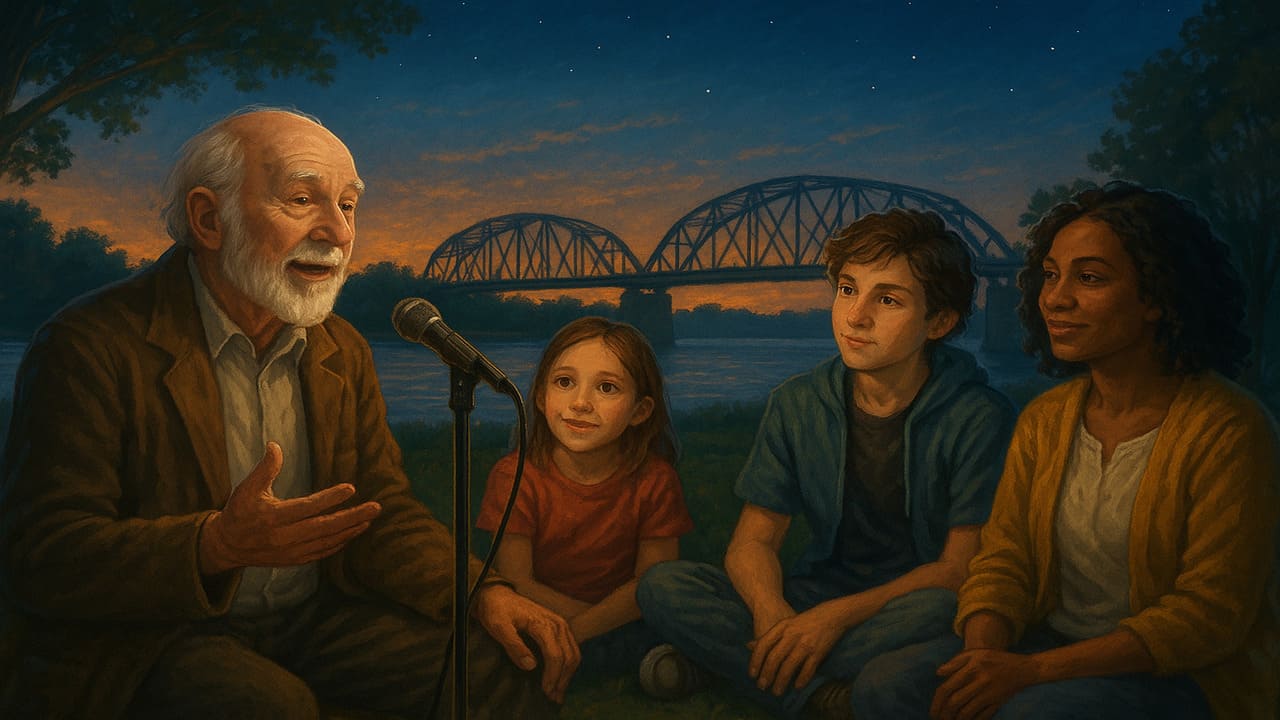
Meet Muscatine – Along the banks of the mighty Mississippi River, the city of Muscatine, Iowa, holds more than scenic beauty it nurtures a living archive of voices, memories, and traditions. One of the most touching and powerful community traditions in this riverside town is “History Nights”, a storytelling event that bridges generations through shared narratives and oral history.
Held seasonally at the city’s riverfront parks and community centers, these nights are not just performances they are gatherings of remembrance and connection, where young and old come together to listen, speak, and learn from each other in a format as timeless as the river itself.
At the heart of History Nights is a simple yet profound idea: the past lives on through the voices of those who experienced it. Instead of lectures or exhibits, Muscatine’s approach to local history is deeply personal. Elders take the stage sometimes under the open sky, sometimes by candlelight indoors to share first-hand accounts of growing up in Muscatine, working in its industries, attending its schools, or witnessing historic events.
From tales of the city’s pearl button factories to memories of the Great Flood of 1993, every story adds another brushstroke to the town’s collective portrait. These recollections are more than facts they’re reflections of culture, resilience, and identity.
Equally important is the inclusion of diverse voices. Muscatine is a melting pot of heritage Latino, African-American, Southeast Asian, and European-American and this diversity is reflect in the stories share. Residents speak in multiple languages, recounting migration journeys, family traditions, and personal struggles that mirror broader chapters of American history.
Read More : Thailand Culinary Tourism and Best Thai Street Food in Bangkok 2025
What makes these storytelling nights special is not only the content but also the audience interaction. High school students often attend as part of civic or literature projects, bringing questions and curiosity. Children come with their families, sitting cross-legged on blankets while listening to elders speak of times before smartphones and streaming.
After each session, there is typically an open forum or social hour where attendees mingle. It’s not unusual to see a teenager engaged in conversation with a WWII veteran, or a young couple inspired by an immigrant’s success story.
These encounters transform history from a subject in textbooks into a shared experience. For many young people, it’s the first time they realize that history isn’t just something that happened it’s something that lives on in people around them.
The History Nights program is made possible through a collaboration between the Muscatine Historical Society, local libraries, and cultural nonprofits. It started as a small event in the early 2010s but quickly grew in popularity, especially during the COVID-19 pandemic when people craved connection and local engagement.
To ensure quality and inclusivity, a volunteer committee curates each event. They reach out to community elders, collect story outlines in advance, and provide coaching for nervous speakers. In some cases, volunteers help digitize and archive stories, preserving them for future generations.
Funding comes from a blend of city grants, community donations, and support from local businesses. Some events are live-stream or recorded for those unable to attend in person, expanding their reach well beyond Muscatine.
Read More : Muscatine Living Heritage: How Local Traditions Thrive in a Modern World
Rather than closing this article with a conclusion, let’s highlight how History Nights has become a springboard for other creative expressions of Muscatine’s identity.
Inspired by the stories shared at the riverbank, local artists have begun creating murals, zines, and short films based on specific anecdotes. One high school drama group even developed a stage play inspired by a widow’s recollection of life during the 1950s industrial boom.
What started as an evening gathering has evolved into a cultural movement, sparking creativity and reinforcing a sense of belonging across Muscatine’s neighborhoods. It reminds everyone whether lifelong resident or newcomer that history isn’t only about what has happened, but what continues to be told, shared, and honored.